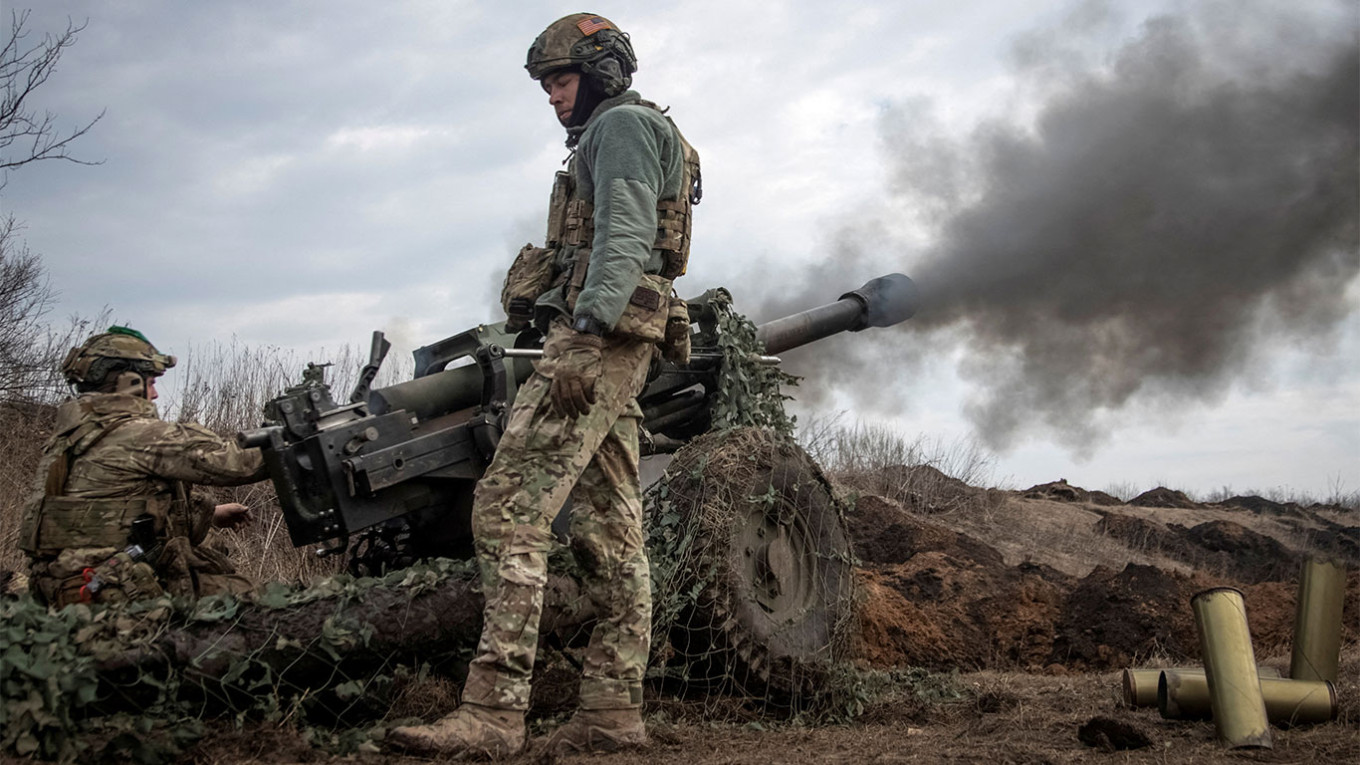The fight for the city of Bakhmut in eastern Ukraine, which started in the summer of 2022, continues unabated. The battle has morphed from one of dubious immediate strategic benefit to Russia into one that has come to symbolize its war efforts. It also highlights the current deficiencies in Russia’s Armed Forces.
Symbolism is not new to warfare. The Battle of Stalingrad, although it had strategic calculations, was also important due to Hitler’s fixation on its symbolic value.
Furthermore, symbolic acts can have strategic impact beyond their immediate military concerns. The problem is when symbolism overtakes sensible strategy.
Bakhmut, from a strictly military standpoint, does not significantly change the war. For Ukraine, however, Bakhmut’s defense is aligned with President Volodymyr Zelenskyy’s arguments that he will accept nothing less than the full restoration of his country.
Russia, despite superior military capabilities, has so far failed to take the city.
Urban warfare favors defenders because they possess an intimate knowledge of the terrain that aggressors don’t. Furthermore, when an army relies on artillery and tactical bombing to the extent that the Russian army does, it risks creating new enemy defensive positions in the rubble of the others they’ve destroyed.
This is a lesson the Russian army has had to relearn multiple times, especially in Chechnya, and forgotten once more.
To overcome these problems, an army must rely upon its infantry and its officers’ initiative to carry the day. In the case of the Russian Armed Forces, with their centralized command system, plummeting morale, and abysmal equipment standards, this isn’t possible.
Nevertheless, Bakhmut has become the focus of Russia’s efforts.
Russia’s arguments for the war in Ukraine — including whether it actually considers the conflict a war at all — have shifted over time. A consistent thread, however, is that the invasion was aimed at protecting Ukraine’s ethnic Russian-speaking population.
Bakhmut is in what Russia considers the Donetsk People’s Republic, an area of Ukraine with a significant ethnic Russian population.
For Russia to claim victory, it must control the Ukrainian regions of Donetsk and Luhansk at the minimum. These two regions together make up the Donbas, a region that is of cultural significance to Russian identity. Soviet propaganda from the 1920s, in fact, identified the region as the heart of Russia.
Russian President Vladimir Putin, as a result, cannot easily suffer setbacks in the region.
Studies on how the war is affecting Putin’s popularity are admittedly problematic. What is known, however, is that Putin relies on the support of Russian nationalists to maintain his position, and taking the Donbas is crucial for that base.
That’s why Russia continues its efforts in Bakhmut and the surrounding region despite Ukraine alleging that between 10,000-20,000 Russian troops have already died there.
These casualties are magnified by the divisions within Russia’s political establishment.
Putin succeeded in establishing a system where overlapping responsibilities mean that he ultimately acts as the arbiter of power. While that system is effective in maintaining Putin’s position in Russian politics, it has some severe disadvantages.
This is most notably evident in the case of the Wagner Group, the country's main mercenary organization, which was created to allow Moscow to embark upon military action abroad while maintaining plausible deniability.
Since the Russian invasion of Ukraine, however, the Wagner Group has become a de-facto branch of Russia’s regular Armed Forces.
Wagner founder Yevgeny Prigozhin, recognizes that the organization’s success will bring him personal power within Russia, and in order to achieve this goal, he has reduced a former highly trained force to one that relies on human wave tactics and employs former prisoners.
Human wave tactics involve an army sending large numbers of soldiers to overwhelm an opponent’s defense, and by their nature cause the attacker to suffer significant casualties.
The rapid increase in the Wagner Group’s size, however, means that it needs considerably more resources than in the past.
The Wagner Group’s need for supplies brings it into direct competition with the Russian army. Prigozhin has publicly condemned Russian army officials, alleging that they are not adequately supplying his forces. The Russian Armed Forces understandably resent this argument given their own supply problems.
The result of this competition is two nominally allied armies rapidly trying to achieve success in a battle that requires patience and precision.
One is liberally using explosives and the other soldiers’ lives to achieve victory. The lack of efficacy of both tactics has furthered the mutual loathing between the parties.
The Battle of Bakhmut, as a result, embodies Russia’s ill-planned adventure in Ukraine. Even if Russian forces succeed in taking Bakhmut, the losses they have suffered and the divisions they have created within the Armed Forces will hang like a specter over their efforts for the remainder of the war.
A Message from The Moscow Times:
Dear readers,
We are facing unprecedented challenges. Russia's Prosecutor General's Office has designated The Moscow Times as an "undesirable" organization, criminalizing our work and putting our staff at risk of prosecution. This follows our earlier unjust labeling as a "foreign agent."
These actions are direct attempts to silence independent journalism in Russia. The authorities claim our work "discredits the decisions of the Russian leadership." We see things differently: we strive to provide accurate, unbiased reporting on Russia.
We, the journalists of The Moscow Times, refuse to be silenced. But to continue our work, we need your help.
Your support, no matter how small, makes a world of difference. If you can, please support us monthly starting from just $2. It's quick to set up, and every contribution makes a significant impact.
By supporting The Moscow Times, you're defending open, independent journalism in the face of repression. Thank you for standing with us.
Remind me later.








